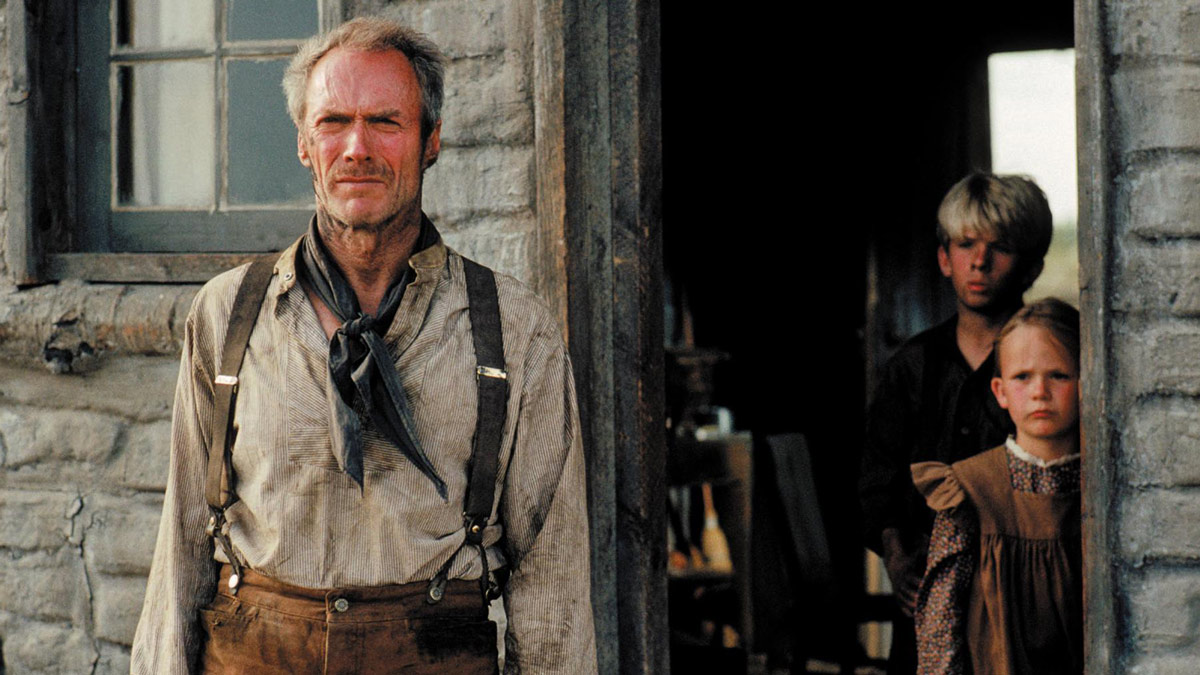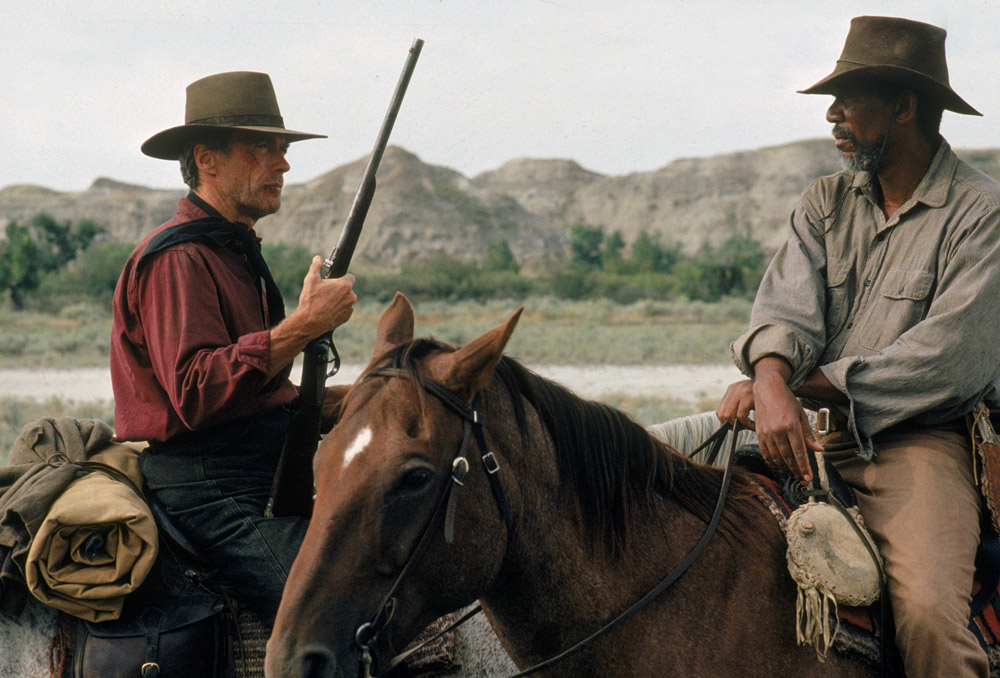
(c)2007 Warner Bros. Entertainment Inc. All rights reserved.
"Unforgiven" American mythology = Eastwood's Arrival stripped of Western drama trappings
2020.08.05
Who are the “Unforgiven”?
On the other hand, Manny (Eastwood), the main character who confronts Little Bill, is also a selfish abuser of violence. While his partner Ned (Morgan Freeman) is unable to pull the trigger when shooting a defenseless herdsman, he shows no hesitation as he shoots and kills defenseless herdsmen for a living. Even if it is to feed young children with the prize money, is this act acceptable?
Manny claims to have been reformed by his wife, but it's clear that he has some of his outlaw blood running through his veins.
Although Bill and Manny are different in that they are both sheriffs and outlaws in terms of their preoccupation with violence, they are essentially the same two sides of the same coin. These two will face off at the end.
"I'll be waiting for you in Inferno." When the dying Bill says that, Manny responds without changing his expression, "Oh."
They have no idea that they will go to heaven. They recognize that they, who have confronted the world with violence, are ``Unforgiven.'' But are they the only ones who are not allowed?

“Unforgiven” (c)2007 Warner Bros. Entertainment Inc. All rights reserved.
All the characters in this work hurt others. A herdsman who slashes prostitutes in the face, prostitutes who put bounties on them, bounty hunters who come to kill them, and a barkeeper who treats prostitutes like objects. Everyone is guilty of hurting someone.
And those of us on this side of the screen cannot feel safe either.
After killing the bounty, Manny whispers to his partner Kid (James Woolvett):
"Killing is an inhumane act. It takes away a person's entire past and future."
“Those guys deserve it.”
"We're the same too."
``We'' include those of us who watch the movie. Maybe tomorrow we too will be entangled in a cycle of violence and slide into the abyss.
We can easily become "Unforgiven." That's what Eastwood is whispering. By foregrounding the violence that Western movies intentionally did not depict, this film does not force us to think about themes that are still relevant today, but it definitely makes us aware of them.
A metaphor for a wife who saves a movie with a cycle of violence.

